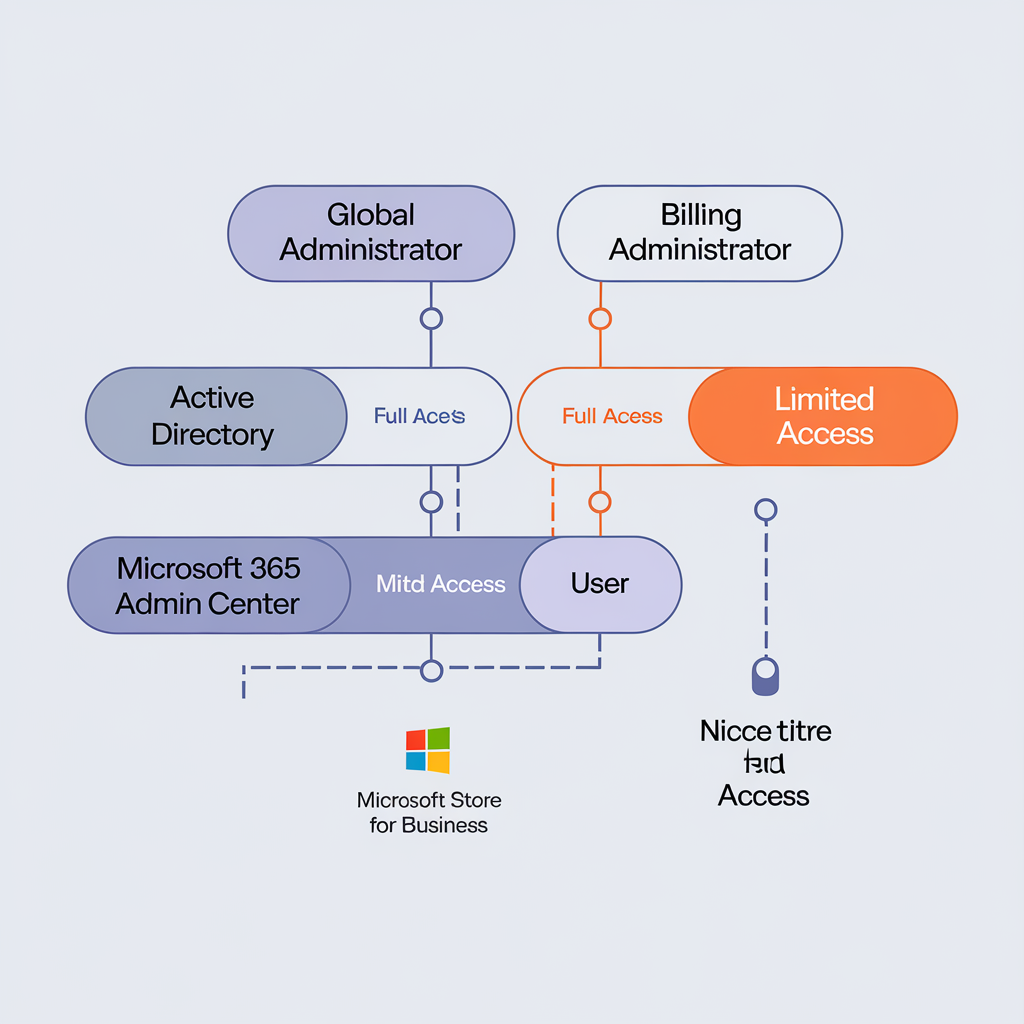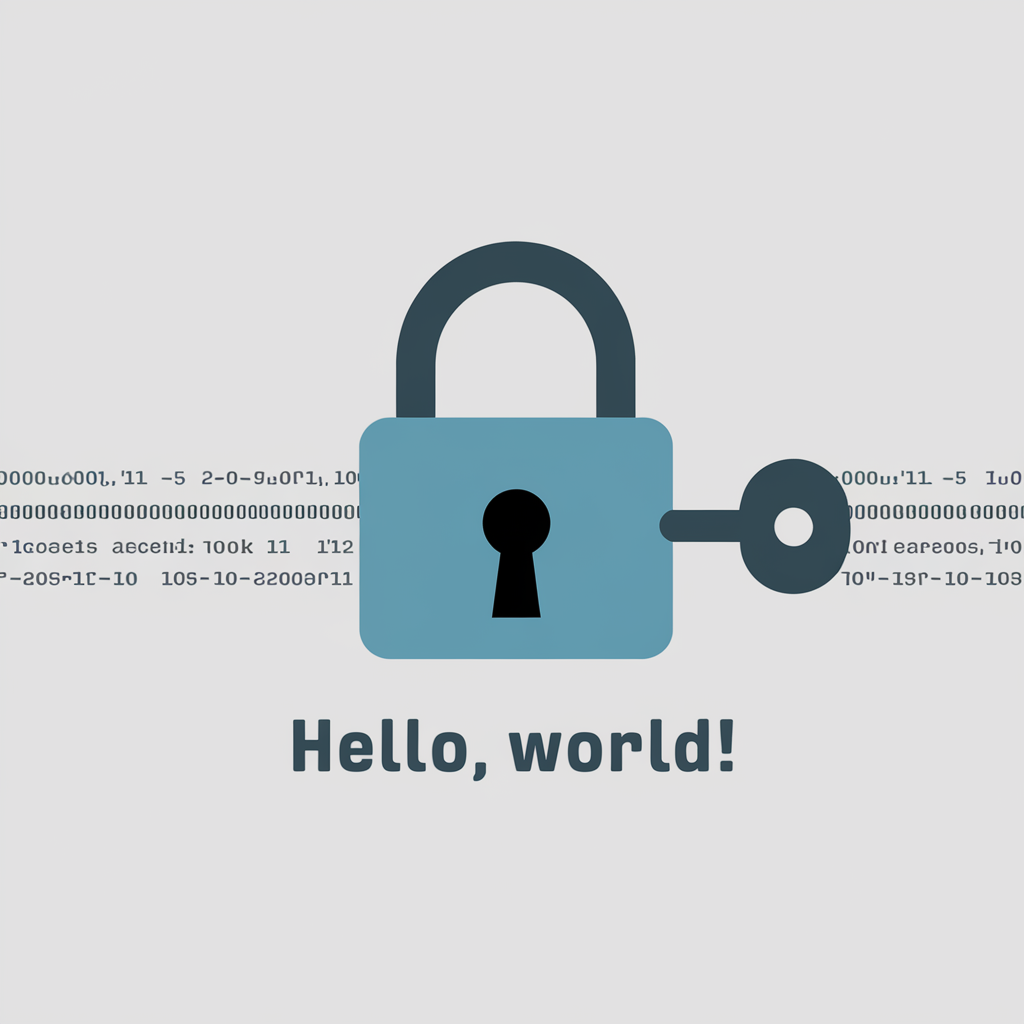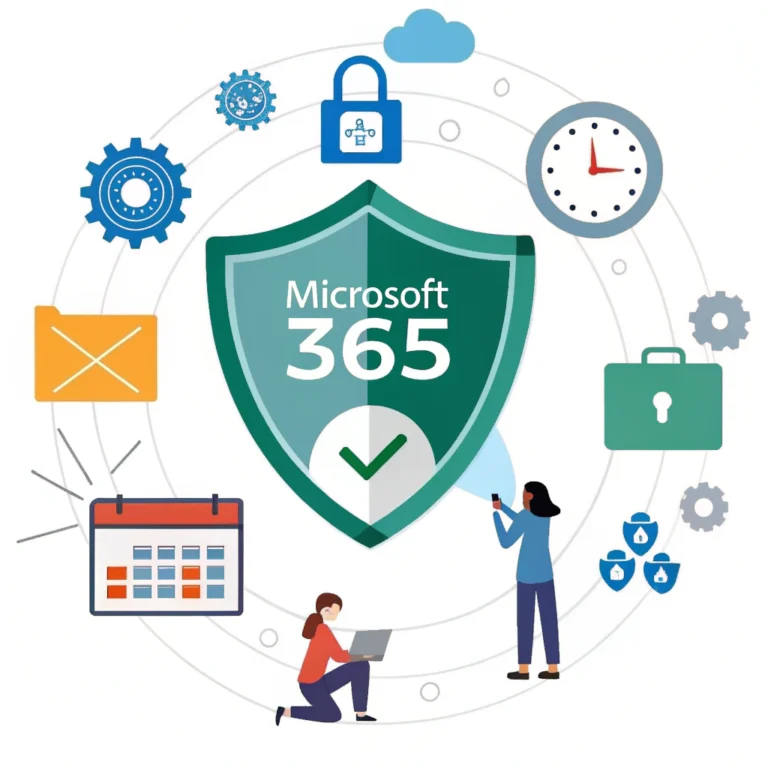Microsoft 365 is a powerful suite of productivity and collaboration tools that has become indispensable for many businesses. However, with the increasing reliance on cloud-based services, it’s crucial to implement essential Microsoft 365 security measures to safeguard your business data from potential threats. In this article, we’ll explore the key security practices that every organization should adopt to ensure the safety and integrity of their Microsoft 365 environment.
Why Prioritising Microsoft 365 Security is Crucial

Cyber threats are becoming more sophisticated and prevalent. Businesses of all sizes are vulnerable to data breaches, malware attacks, and unauthorised access, which can lead to significant financial losses, reputational damage, and legal consequences. By prioritising essential Microsoft 365 security measures, you can proactively protect your business data and minimise the risk of falling victim to cybercrime.
Multi-Factor Authentication: The First Line of Defense
One of the most essential Microsoft 365 security measures is enabling multi-factor authentication (MFA). MFA adds an extra layer of security by requiring users to provide additional verification, such as a code sent to their mobile device, in addition to their password. This significantly reduces the risk of unauthorized access, even if a user’s password is compromised. Implementing MFA across all user accounts is a critical step in securing your Microsoft 365 environment.
Role-Based Access Control: Limiting Data Access

Another crucial aspect of essential Microsoft 365 security measures is implementing role-based access control (RBAC). RBAC allows you to define and manage user permissions based on their roles and responsibilities within the organization. By granting users access only to the resources they need to perform their tasks, you can minimize the potential for data leaks and unauthorized access. Regularly reviewing and updating user roles and permissions is essential to maintain a secure Microsoft 365 environment.
Data Loss Prevention: Safeguarding Sensitive Information
Data loss prevention (DLP) is a critical component of essential Microsoft 365 security measures. DLP policies help identify, monitor, and protect sensitive data, such as personally identifiable information (PII) or financial records. By configuring DLP policies, you can prevent the accidental or intentional sharing of sensitive data outside your organization. Microsoft 365 offers robust DLP capabilities that can be customized to meet your specific business requirements.
Encryption: Protecting Data in Transit and at Rest

Encryption is a fundamental aspect of essential Microsoft 365 security measures. By encrypting data both in transit and at rest, you can ensure that even if data is intercepted or accessed by unauthorized parties, it remains unreadable without the proper decryption keys. Microsoft 365 provides built-in encryption features for email communications, file storage, and data transmission, ensuring that your business data remains secure.
Employee Training and Awareness: The Human Factor
While technical security measures are crucial, it’s equally important to address the human factor in essential Microsoft 365 security measures. Employees are often the weakest link in an organization’s security posture, and they can inadvertently expose business data through phishing scams, weak passwords, or improper handling of sensitive information. Regular employee training and awareness programs are essential to educate users about security best practices and empower them to be the first line of defense against cyber threats.
Monitoring and Auditing: Staying Vigilant
Implementing essential Microsoft 365 security measures is not a one-time task; it requires ongoing monitoring and auditing to ensure the effectiveness of your security controls. Microsoft 365 provides extensive logging and reporting capabilities that allow you to track user activities, detect suspicious behavior, and investigate potential security incidents. Regularly reviewing audit logs and monitoring for anomalies can help you identify and respond to threats in a timely manner.
Incident Response and Recovery: Being Prepared
Despite implementing essential Microsoft 365 security measures, it’s crucial to have a well-defined incident response and recovery plan in place. In the event of a security breach or data loss, having a clear set of procedures and responsibilities can minimize the impact and ensure a swift recovery. Regularly testing and updating your incident response plan is essential to maintain its effectiveness and align with evolving threats and business requirements.
Partnering with a Trusted Security Provider
Implementing essential Microsoft 365 security measures can be complex and time-consuming, especially for businesses with limited IT resources. Partnering with a trusted security provider can help you navigate the ever-changing threat landscape and ensure that your Microsoft 365 environment remains secure. A reputable security partner can provide expert guidance, implement best practices, and offer ongoing support to help you maintain a robust security posture.
Implementing essential Microsoft 365 security measures is no longer optional; it’s a business imperative. By adopting a proactive approach to security, you can protect your business data, maintain customer trust, and ensure the continuity of your operations. From enabling multi-factor authentication and role-based access control to implementing data loss prevention and encryption, there are numerous measures you can take to fortify your Microsoft 365 environment.
Remember, security is an ongoing process that requires continuous monitoring, employee education, and adaptation to emerging threats. By staying vigilant and partnering with a trusted security provider, you can navigate the complexities of Microsoft 365 security and safeguard your business for long-term success.

